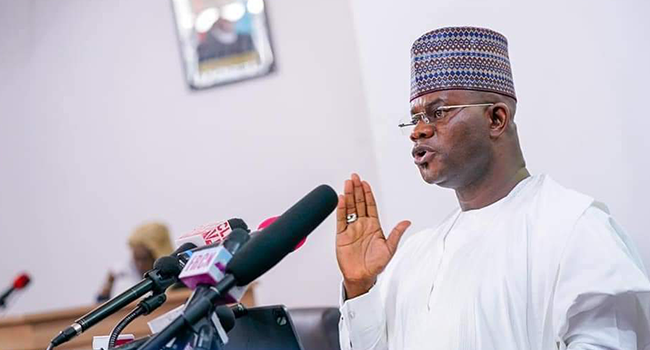The Kogi State Government has issued a 48-hour ultimatum to Nigeria’s anti-corruption unit, the Economic and Financial Crimes Commission (EFCC) to apologise and retract a malicious statement that claimed it kept ₦20 billion bailout fund meant to pay salaries in a commercial bank meant to yield interest.
In a briefing on Sunday in Lagos, the Commissioner for Information, Kingsley Fanwo, maintained that the state government did not open or create the said account.
‘I want to assure you that after 48 hours from today, if they refuse to retract their ill-fated, false, politically motivated, irresponsible press statement, we will drag them to court,’ the commissioner said.
The commissioner equally challenged the anti-graft agency to produce the account mandate and details of those who operated the account.
Read Also: ₦19.3bn Bailout: We Will Prove EFCC Wrong, Kogi Govt Vows
This is even as the Kogi State Government said it has gotten the bank’s response which exonerated them from running the account.
According to the state, the government has enough evidence against the EFCC to have a field day in court.
‘The Kogi State government does not currently operate or maintain a fixed-deposit account with Sterling Bank.
‘There is no mandate letter from the Kogi State Government to open account number 0073572696 with Sterling Bank. Sterling Bank account 0073572696 is an internal mirror account operated by the bank for purposes of managing the Kogi State Salary Bailout facility,‘ Fanwo added.
The EFCC in a 13-paragraph affidavit in support of an exparte application has stated that it received a credible and direct intelligence which led to the tracing of the fund reasonably suspected to be proceeds of unlawful activities of accounts domiciled in Sterling Bank.
Africa Today News, New York had earlier reported that Fanwo, had disclosed that the State Government has enough facts to disprove the allegation on the diversion of the bailout funds by the Economic and Financial Crimes Commission (EFCC).
AFRICA TODAY NEWS, NEW YORK

